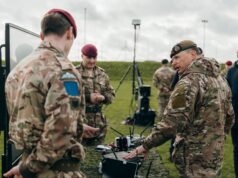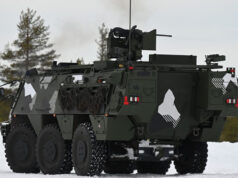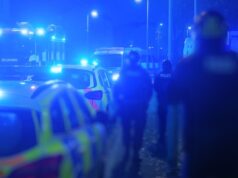The Ministry of Defence recently disclosed data on the occurrence of Post-traumatic Stress Disorder (PTSD) among UK Armed Forces personnel.
This data, presented on 13 March 2024, outlines the number of personnel diagnosed with PTSD from 2010 to 2023.
The table below summarises the number of armed forces personnel who received an initial PTSD assessment by a specialist mental health clinician at a Ministry of Defence Department for Community Mental Health over the years:
| Year | Number of Cases |
|---|---|
| 2010 | 244 |
| 2011 | 254 |
| 2012 | 323 |
| 2013 | 370 |
| 2014 | 316 |
| 2015 | 281 |
| 2016 | 305 |
| 2017 | 315 |
| 2018 | 282 |
| 2019 | 352 |
| 2020 | 215 |
| 2021 | 203 |
| 2022 | 266 |
| 2023 | 320 |
The data reveals fluctuations in the diagnosis of PTSD among military personnel over the last fourteen years. After an initial increase peaking at 370 cases in 2013, numbers varied in the following years, with a noticeable decrease to 203 cases in 2021 and a subsequent increase to 320 cases in 2023.













Off piste but anyone got a clue why HMS Queen Elizabeth is in Portland Harbour ? She went in and out yesterday, went east through the straits of Dover and then went back into Portland for some reason or another, I wonder if they are trying to get her back into Pompey.
I thought she was on her way to Rosyth via Glenmallan !
Interestingly and according to tracker info she was chugging along at 17 knots, not bad with a dodgy prop coupling.
Will be some other problem, sadly a bit of good news from that ship is long over due,
Speak for yourself. I haven’t had a drop for days. 😉
I have PTSD and can see why, the crap idiots pile on you and the fact that if you are a SNCO your not meant ever to get mental health problems as its not good for the reputation of the WO’s Sgt mess.
Early help and a bit of understanding goes a long way rather than worrying you might catch it or be marked down on your CR if you are seen with any one struggling due to what they have been through.
Some things never change unfortunately. RSMs and BSMs/CSMs need to have specific training to be able to manage this correctly and to make sure help is at hand and no discriminatory behaviour is shown or employed against individuals suffering from this awful condition.
My BSM was good my RSM was a nasty man, a disgrace to the many before him who where out standing leaders. And yes the WO’s Sgt Mess is a no help its a bad place to have PTSD, lucky my treatment at CMH Cattrick was out standing. As has been my treatment in the NHS.
I’ve seen the same when you have a good RSM things run good at nearly every level in the regiment. When you are unlucky to get stuck with a bad one you get the opposite effect and everyone’s just marking time till they go. Makes life a misery.
He did, was out of his depth dealing with PTSD and really did not care he just wanted any one with PTSD gone asp. And the WO’s mess is full of a few good men, but many are no diffrent.
No one wants PTSD , and can not catch by talking to some that has it.
I think you just hit the nail on the head. “Out of his depth” there’s a fair few out there that don’t have the skill set to manage at that level and consequently are bad managers. Maybe the MOD should bring in certain qualifications before they get to the RSMs board.
It needs to taught and needs to stress its not the persons fault, i felt as if it was my fault, and he just wanted me/it to go away.
Poor leadership is poor leadership though. Its a pity ruined my opinion of the Army, Which I agree is unfair
Have to admit I’d never heard of PTSD until after the Falklands. One of our guys who was para trained and had been on the OPs during the conflict was moved to the Bty MT store, now he didn’t take kindly to this so marched into the BSMs office and. said he wouldn’t do it. An argument then took place with then soldier picking up the BSMs pace stick and cracking it over his knee, he then walks out the Bty office and decks the Adjt who happens to be walking across the road, he then marches himself into the big cell in our nick but doesn’t cool down but pulls off all those big iron radiators off the walls so the cell is filling up with boiling water, they open the door and he walks out (no one’s stopping him) meanwhile a bunch of guys who had been out on a training run for pre-para came into camp led by our regimental PTI SSgt who thought it would be a good idea to stop this soldier walking out of the nick. Bad idea, anyway said soldier got sent for a psychiatric assessment which came back as PTSD. I don’t recall any action being taken against him after either. When I spoke to him later he said he’d had a real problem going from the conflict to the hum drum life of camp life.
Just think of all of the cases that must have occurred because of Op Banner.
There must have been very many.
I have the diagnosis too. Accepting it as a normal reaction to abnormal circumstances, rather than weakness. Is the difficult first step. Not easy in the Sgt Mess as you correctly report. Help from fellow veteran sufferers can be beneficial.
Did you ever meet Dr Dafydd Alun Jones from Ty Gwyn. That man was brilliant.
never meet him i was treated CMH Cattrick, they were very, very good
A few basic facts of PTSD
there are two very different measures around PTSD research:
1) screening for PTSD symptoms….these tend to show higher prevalence ( these are people who many have some symptoms or characteristic but don’t hit formal diagnosis or need active treatment)..these people will still fully function if on the edge.
2) formal diagnosis…these will be less in number and need active treatment..they will be debilitated in activities of daily living and not able to actually function properly.
so from some evidence based papers I have read if a bit of research evidenced that 20%…25% of a specific population had PTSD systems from a screaming tool you would get a diagnosis rate of around 8%.
pre pandemic around 4% of the general population would have PTSD with women twice as likely as men to get it ….which is interesting…it’s not really known why there is this difference in men and women but it’s through that it could be related to the far higher rates of mental, physical and sexual abuse suffered by women.
When you look at specific populations that are likely to suffer an episode that triggers PTSD the rates are far higher…so for people who have had an episode of care in ITU we see PTSD diagnosed at above 20%..( that’s not screening that’s actually diagnosed and this is actually the highest rate of any population anywhere ) for veterans we see rates double that of the normal population…diagnosis rate of 8% ish….( so I suspect if you did a screening of the veteran population you would see around 20%) police officers are an interesting case at around potentially 20% from screening so their diagnosis rates will probably hit the 8% mark…much of this may be due to links around chronic exposure to stressors ( more on that later).
Probably one of the most interesting studies around occupation driven PTSD and mental illness was on NHS healthcare workers…which basically showed the majorly of the workforce was suffering from mental health issues with screened around 52% triggering the CMD screen ( common mental health disorder..depression or anxiety etc) and 25.5% for PTSD…actually diagnosis ( as in needed treatment) was at 21.5% for common mental health disorders and 8% for PTSD…but effectively the paper evidenced rates of almost 30% of front line healthcare workers in the NHS had a formally diagnosable and treatable mental health condition…that is sort of scary to be honest…most of those Drs and nurses you see in ED and need to be on best form to save your life and you may need to depend on for your life or a loved ones life are actually diagnosable as having a mental illness…and either suffer clinical depression, anxiety or full blown PTSD or complex PTSD.
final bit is around chronic and acute stressors…so for the uninitiated acute is immediate and chronic is long term..so as an acute episode is a single episode of very high stress..say seeing your friend run over by a bus…a chronic episode is stressors over a long period..working in ED every day and seeing people die from violence and accidents every day…now it was once thought that PTSD came from a single episode….seeing that bus do for your mate…and that is the case a lot of PTSD is linked to this…but what they have now recognised is something called complex PTSD this relates to stressors happening over a very long period of time and actually leads to a more profound and difficult to treat illness that simple PTSD..this is the veteran that after long service in a active theatre completely falls apart and lives on the streets…the child who was abused for years and ends up a broken adult on the streets…interestingly we had a diagnosis called boarderline personality disorder…this was considered essential untreatable and an integral part of the persons personality ( they were essentially chaotic people with no control or regulation of thought, emotion or actions) there is now evidence to say a lot of people with the boarderline personality disorder actually suffer from complex PTSD cases by chronic trauma in the past and it’s not intrinsic to who they are.
The way I see it the brain can only work so fast. If you present it with violent physical or emotional threats unexpectedly or too repeatedly it does not have time to formulate a rational survival response – fear and anger dominate. Treatment requires persistent kindness and the sufferer must practice quieting the mind using fasting and prayer. Situations which might trigger a relapse must be re-introduced gradually as the broken connections in the brain rebuild. Remember your Shakespeare “beware the Ides of March”. Everyone is prone to road rage in Spring when the sap is rising. Spike Milligan probably had PTSD after his experience in WW2.
19 Oct 2010 | by Judy Kirby
Dafydd Alun Jones, consultant psychiatrist, has spent thirty years treating the soldiers, who have been traumatised by their experience of conflict
In 1981 consultant psychiatrist Dafydd Alun Jones had a referral from a GP to his clinic in Dolgellau, Wales. The patient had been pensioned out of his family firm suffering from depression and alcoholism. The story that emerged was one of trauma lasting decades. The man had been shot down over Holland in the second world war during a night mission, survived and made it almost to the Pyrenees before being captured and subsequently ill-treated.
That case set Dafydd Jones on a long campaigning journey. At the time of the referral, little was known about long term traumatic stress conditions, but it was clear to the psychiatrist that his patient had been in a continuous state of trauma since his wartime experience.
Now 80, Dafydd Jones is still treating ex-service men and women but mainly funding the treatment himself – his work has been dogged by lack of funding and government support.
In 1990 he set up a specialised in-patient unit to treat veterans in Llandudno called Ty Gwyn. The unit was unique in that it took the most severe PTSD patients, often with drug and alcohol addiction problems. It was also unique in its funding arrangements – one of the first examples of ‘extra contractual referrals’ in the NHS in the early 1990s.
‘I jumped in at the start,’ says Dafydd Jones. Local health boards and authorities from across the UK referred there, meaning that funding had to be argued afresh in each case, a time-consuming and frustrating process. Eventually, only one in five patients was getting funding approval. ‘Funding was a disaster from the start’, he admits, ‘but therapeutically it was a miracle.’
At Ty Gwyn 600 veterans were helped over five years before the unit was forced to shut in 2005. It was a personal grief for Dafydd Jones that the Welsh Assembly did not save the unit, preferring instead to use the ex-services mental health charity Combat Stress. But Combat Stress does not take veterans suffering PTSD who are not ‘clean’ in their three treatment centres (See box page 11).
With the closure of his unit there is now nowhere comparable in the UK where severely traumatised ex-soldiers with challenging drug, alcohol and behavioural problems can have any meaningful treatment.
‘I was able to use a section of the Mental Health Act (1983) to get ex-servicemen out of jail on bail and into Ty Gwyn,’ says Dafydd Jones, ‘where we were able to help them. There is no specialised unit doing this now.’
Those suffering military-related PTSD do not fit in well with established clinical services. ‘They need sanctuary,’ he says, ‘where they are known and relate. They recoil from big NHS mental health units where they can be intimidating to other patients. Care in the community is no good for them either. They need a community of peers – with other squaddies, military support without the military, where they can get their lives back.
‘At Ty Gwyn we dried them out. Staff were always on hand for them, even if a man came down in the middle of the night needing to talk.’
That Dafydd Jones bonds with mentally scarred war veterans is obvious; his treatment programme helps them unburden the fears they have lived with. That he has fought their corner tenaciously may be the reason for some of the official resistance he has encountered over the years. But he does not lay blame.
‘I am just a clinician and I don’t sit in judgement on anyone. The army isn’t a branch of the social services. We train military people to kill. But then we expect them to be normal.’
There is one aspect of public opinion that does rankle enough for an outburst – the inference that soldiers who get into trouble had behavioural problems before military service. ‘It’s the hymn sheet the Army wants its experts to sing from,’ he says, ‘they say: “we have had no part in the harm done to them.” It’s a calumny and a gross distortion!’
‘I ask the families: “what was he like before recruitment? Was he drinking?” The vast majority wouldn’t have been offending if they hadn’t had this experience.’
Interesting George, cheers..one big take home is the fact support and treatment services really like to have a nice easy diagnosis with no complications ( drug and alcohol addiction) but the nature of someone who is suffering significantly from a stressor induced mental health issue ( whatever diagnosis label it’s given) will tend to have very complex presentations that may or may not include..challenging behaviour, violence, drug use, alcohol use, chaotic behaviours such as not turning up to appointments and disengagement….services simply tend to drop these people like hot potato’s……
Very true. I’ve had occasion to help several veterans find the right help. There are as many forms of what is called PTSD as there are sufferers. Out of character behaviour seems universal even if it’s not a problem, yet!
Civilians mental health staff are simply not equipped to understand the military mindset. Dr Jones used to say, normal behaviour and thought processes for soldiers, would be certifiable in the general public. Take our vigilance and threat awareness for example, it’s second nature. But not for Joe public. No need to explain. Those who have served will know exactly what I mean.
There has been recent evidence that people join the army with PTSD.
My brother and I both joined to get away from our circumstances.
I can understand that Dave. Hopefully you both found quality comradeship and benefitted from your time in the army.
Stuck around for twelve years, long enough for some.
Still meet for port weekends occasionally.
As it should be my friend. Thanks for your replies and best wishes.
Your last paragraph has been known by the army for decades. I remember a poster, there was an image of a REME chap with a moustache, the comment was to the effect of”Bravest man I ever knew, now he cannot turn a corner”, I think.
Mmmmmm, maybe it was the British Legion.
Either way, someone knew about it.
I am a bit surprised at the increase. PTSD is usually (but not always) a consequence of combat and there has not been much combat experienced since the UK’s withdrawal from Afghan in 2014. It used to be said over a decade ago that most PTSD is undiagnosed for 7 years, but I am sure that diagnosis must be somewhat quicker these days.
I am of course hugely sympathetic to anyone with PTSD however it resulted (combat or other reasons) – a number of my soldiers who were detached from their unit in Nienburg to go to the first Gulf War probably suffered from PTSD.
Interestingly there does seem to be a general increase across all population types..that relates to covid….there is some good evidence coming out that long term stressors can be more impactful as well…where as before we though it was one incident…so piling on stressors year after year can be a factor as well.